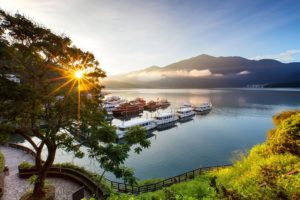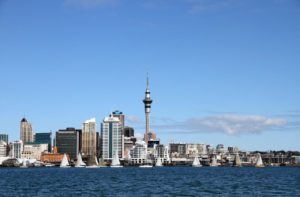Taiwan: Dependent status for same-sex spouses
Following the decision to legalize same-sex marriage, same-sex spouses are now able to apply for an Alien Residence Certificate (ARC) in Taiwan.
Impact 
The policy applies to the 26 countries that recognize same-sex marriage: Argentina, Australia, Austria, Belgium, Brazil, Canada, Colombia, Denmark, Finland, France, Germany, Iceland, Ireland, Luxembourg, Malta, parts of Mexico, the Netherlands, New Zealand, Norway, Portugal, South Africa, Spain, Sweden, the United Kingdom (except Northern Ireland), the United States and Uruguay.
Different qualification criteria applies to same-sex spouses of Taiwan work permit holders as well as Taiwanese nationals.
Looking ahead
The benefits of dependent status include:
- Residence in Taiwan (for the duration of the spouse’s work permit, if applicable)
- National health insurance contributions
- Opportunity to work under certain circumstances
The government policy has not been published and to date has only been communicated verbally.
This summary was prepared using information obtained from Peregrine Immigration Management.
Disclaimer: The above information is provided for general information purposes only and should not be construed as legal advice. If you have any further inquiries regarding the applicability of this information, please contact Debra Beynon, Regional Immigration Manager, APAC.
New Zealand: Income thresholds for dependent sponsorship
Immigration New Zealand regularly reviews and adjusts minimum income levels to ensure that foreign nationals have enough income to support themselves and their families while in New Zealand.
Impact 
The minimum income for Essential Skills and Religious Worker work visas is now NZD 43,332.76. Both parents can combine their income to meet this requirement if they hold Essential Skills visas.
The minimum income threshold for the Samoan Quota Scheme and Pacific Access Category residence visa is now NZD 38,577.76. This threshold applies to applicants with partners or dependent children.
This summary was prepared using information obtained from New Zealand Immigration.
Disclaimer: The above information is provided for general information purposes only and should not be construed as legal advice. If you have any further inquiries regarding the applicability of this information, please contact Debra Beynon, Regional Immigration Manager, APAC.
United States: Social media required for visa applicants
The United States is now requiring nearly all visa seekers to provide personal details about their social media activities. Those applying for U.S. visas will be required to provide past email addresses, user names and phone numbers.
Impact 
This policy is part of the U.S. government’s expanded “extreme vetting” process for all immigrants and non-immigrants. The only applicants not covered under the new rules are those seeking diplomatic or official visas.
The U.S. State Department confirmed that it had changed its immigrant and non-immigrant visa forms to require the additional information. The forms seek five years’ worth of social media user names, telephone numbers, international travel activities and deportation history. Visa seekers are also asked whether any family members have been involved in terrorist activities.
Looking ahead
The State Department said in a statement that the new requirements are aimed at improving the vetting process to protect national security.
This summary was prepared using information obtained from the New York Times.
Disclaimer: The above information is provided for general information purposes only and should not be construed as legal advice. If you have any further inquiries regarding the applicability of this information, please contact Roberta Carnaccini, Global Operations Director, Immigration.
We track policy changes in over 120 countries. Find out how we can help you in this short video.




